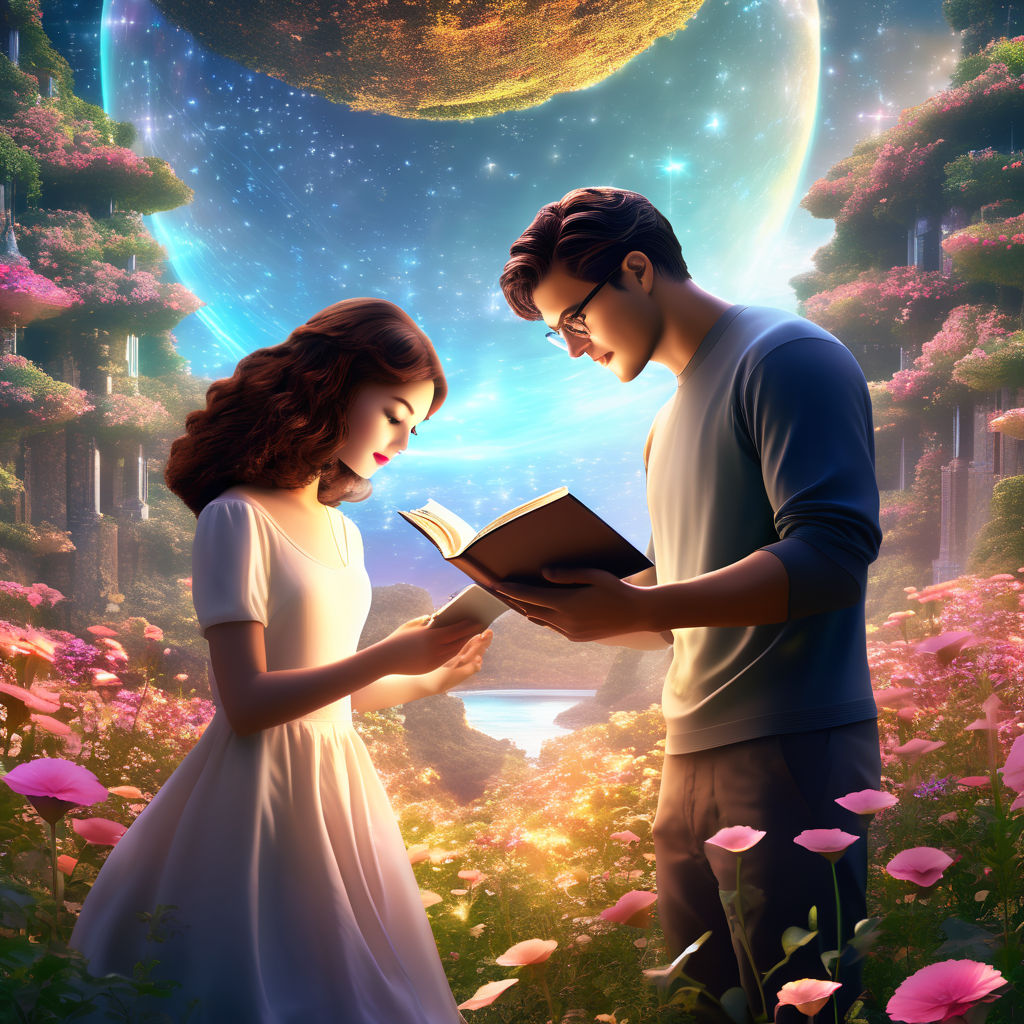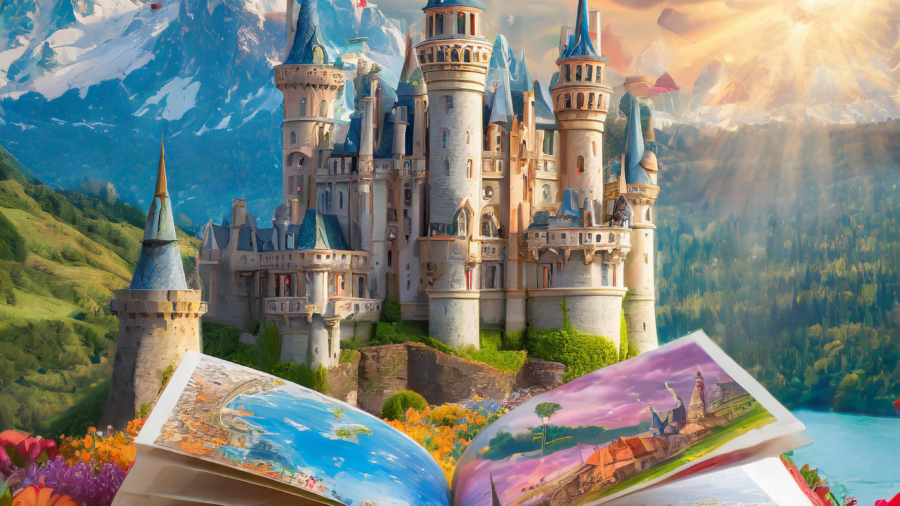The creative person sees life from more angles and in more ways than the ordinary person. A deep analysis of the beauty and ugliness of life is found in poetry and literature. Life is not as simple as it appears on the surface; it is full of complexities and its colors are very diverse. It is both very compassionate and, in some ways, very cruel. Life and circumstances are inseparable; circumstances have a profound impact on life. Circumstances can be good or bad, but the word “circumstances” generally refers to the negative aspects of life. Remembering past good times is both a source of sadness and a lament for the ugliness of the present.
It is said that the height of poetic expression is that it can say in a few verses what cannot be said even in the longest prose. There are many different conceptions of life. Some conceptions, in the form of traditions, determine our way of life. When a person begins to understand the affairs, mysteries, and realities of life, he expresses his view of life in a certain way. It is also important here that the poet has his life circumstances, in the context in which he expresses his point of view.
Table of Contents
ToggleWhispers of Wisdom: Unveiling Life's Lessons Through Poems about Life
Poetry is a powerful tool for understanding life. It allows us to see the world from different perspectives and to experience a wide range of emotions. By reading and analyzing poetry, we can learn more about ourselves and the world around us.
The Importance of Context
It is important to remember that no single poem can tell us everything about a poet’s life or work. Each poem is a reflection of a particular moment in time, and it is important to consider the context in which it was written.
The Variety of Human Experience
Poetry offers us a glimpse into the many different ways that people experience life. Some poets see life as a source of joy and beauty, while others see it as a source of pain and suffering. There is no one right way to view life, and poetry can help us to appreciate the diversity of human experience.
Learning from life poems,different Perspectives on Life
By reading and reflecting on poetry, we can learn valuable lessons about life.We can learn about the importance of love, compassion, and understanding. We can also learn about the challenges of life and how to overcome them.
Some people believe that the essence of life is love. They see love as the driving force behind all human actions and emotions.
Others believe that life is about experiencing a wide range of emotions, both positive and negative. They argue that it is through these experiences that we learn and grow as individuals.
Still others believe that life is about finding beauty amid pain and suffering. They see the challenges of life as opportunities for strength and resilience.
Finally, some people believe that life is simply about being happy. They focus on enjoying the present moment and finding joy in the simple things.
Horace certainly offers a perspective on life through his epic poems.
Here are a few lines capturing his “prescription” for life, drawing from themes in the Iliad and Odyssey.
“A man of worth can even outdo a stronger rival if he is resolute.”
“Like leaves on the trees, so is the generation of mankind. The wind scatters the old ones, while the spring brings forth new ones…”
“It is not right to stay here quiet like a coward, but let me go forth and meet the foe!”
“Fools always speak before they think.”
“Always be the best, strive to be the best…”

Ovid’s poetry that offers prescriptions about life:
“Fortune is ever-changing, so must you.”
This line emphasizes the impermanence of life and the need for adaptability.
“Love is a many-formed thing, and comes in many ways.”
“Live each day as if it were your last.”
This line encourages us to seize the day and make the most of our time.
Novalis was a German poet.
Here are a few lines capturing Novalis’ perspective on life:
“We are of nature, and nature is of us; there is no difference.” This reveals his belief in the interconnectedness of everything and the power of imagination to bridge the gap between humans and the world.
“The blue flower is the first thing one meets in the land of longing.” This famous metaphor depicts life as a journey driven by a deep yearning for an ideal reality, ultimately leading to a transformative experience.
Walt Whitman stands as a giant in American literature.
“I celebrate myself, and sing myself,
And what I assume you shall assume,
For every atom belonging to me as good belongs to you.”
These opening lines of “Song of Myself” capture the essence of Whitman’s perspective on life. He celebrates the individual, yet emphasizes the interconnectedness of all people. He believes that every person is unique and valuable and that we share a common humanity. Through celebrating his existence, he invites the reader to celebrate their own and recognize the shared experience of being human.
Maya Angelou was a powerful American poet, memoirist, and civil rights activist.
Here are two excerpts reflecting her perspective on life:
From “Still I Rise”
“You may write me down in history
With your bitter, twisted lies,
You may trod me in the very dirt
But still, like dust, I’ll rise.”
This poem exemplifies her unwavering spirit in the face of oppression.
From “Phenomenal Woman”
“Pretty women wonder where my secret lies.
It lies in the skin I’m in, in the eyes that are mine.
I walk like I’ve got oil wells
Pumping in my living room.”
This poem celebrates the beauty and strength of Black women, defying societal expectations and embracing their power.
John Milton Known for his epic poem
“Paradise Lost,” Milton grappled with themes of faith, free will, and the nature of good and evil.
William Butler Yeats stands as a towering figure in Irish and world literature.
“Turn away from the drawing room with its gilt chairs and high tea.” (The Lake Isle of Innisfree) This line encourages a simpler life, a rejection of materialism and societal expectations, in favor of a connection with nature.
Amanda Gorman is a young American poet.
“For while we may live in different times,
and come from different places,
we hold in common a future laced
with challenges that transcend our race.
Gorman’s poems celebrate the potential for positive change and the importance of using one’s voice to advocate for a better future. Her work inspires hope and encourages individuals to actively contribute to building a more just and equitable world.
The Urdu poet Mirza Ghalib
Believed that life and sorrow are inseparable. He argued that as long as a person is alive, they will experience some degree of sorrow. This is because life is full of challenges and difficulties, which can lead to sadness, pain, and suffering.
Ghalib’s views on life and sorrow are reflected in his poetry. In one of his most famous ghazals, he writes:
“Since sorrow follows joy
As autumn does spring
Man must transcend the joys
Of earth, which sorrows bring.”
In this ghazal, Ghalib compares the cycle of life and sorrow to the cycle of the seasons. Just as spring is followed by autumn, so too is joy followed by sorrow. This is the natural order of things, and it is something that humans cannot escape.
However, Ghalib does not believe that humans should simply give in to sorrow. Instead, he argues that we should strive to transcend the joys and sorrows of this world. This can be done by focusing on spiritual matters and by seeking a higher truth.
Ghalib’s views on life and sorrow are both pessimistic and hopeful. On the one hand, he believes that sorrow is an inevitable part of life. On the other hand, he believes that humans can transcend sorrow by seeking a higher truth.
The Urdu poet Jaun Elia
Believed that life is about learning to lose in our unique way. He argued that the experiences we have in life, both positive and negative, shape who we are and how we see the world.
Elia’s views on life are reflected in his poetry. In one of his most famous ghazals, he writes:
“We have lived the life that could not be lived by us,
We have lost life in our way.”
In this ghazal, Elia explores the idea of living a life that is true to oneself, even if it means making mistakes and experiencing pain. He argues that it is through these experiences that we learn and grow as individuals.
Elia’s views on life are both challenging and comforting. On the one hand, he challenges us to confront the reality of loss and disappointment. On the other hand, he offers us the comfort of knowing that we are not alone in our struggles.
The Urdu poet Nida Fazli
Believed that life is made up of a few dreams and a few hopes. He argued that it is these dreams and hopes that keep us going, even when things are tough.
Fazli’s views on life are reflected in his poetry. In one of his most famous poems, he writes:
“Life is a few dreams,
And a few hopes,
With these,
Man is forced to be content.”
In this poem, Fazli explores the idea that life is not always easy, but it is still worth living. He argues that it is the dreams and hopes that we have that give our lives meaning and purpose.
Fazli’s views on life are both realistic and hopeful. On the one hand, he acknowledges that life can be difficult. On the other hand, he believes that it is still possible to find happiness and fulfillment.

Like an uncontrollable wild horse, life rushes shaking the poet and evoking a sense of wonder in them, like a silent spectator. Life’s unbridled direction and speed are becoming a web of engagements, where the day and night sequences are getting longer. Life does not allow the individual to sort things out, and the individual is being carried away by the pace of life, contrary to his desires.
The complexities of life entangle the individual in such a way that he feels his identity is being lost moment by moment. Each changing scene is writing new things on the paper of the sense of life. In the struggle of life, the silence of a few moments feels like a jumbling of time and space.
The human being’s lostness has become entangled in the endless chains of division after division, where the poet feels like saying that the deception of life has taken us a little bit of work that our days have passed.
The poet has many questions about the philosophy of life where the meaninglessness of life, the helplessness of man in front of its relentless pace, and the problem of self-realization are more serious.
Many poets have also mentioned a point in life where the presence or absence of happiness and sadness is considered equal. Some call it apathy, while others call it a place of consciousness.
This is such a complex topic that there are no fixed boundaries. In the end, I present my personal opinion:
Isn’t life just one day,
With morning, noon, evening, and then night?
From birth, a human has the urge to learn and explore,
In youth, to desire and to attain,
The next part of life is spent reaping the rewards of one’s actions,
Then, when matters and realities begin to make sense,
The night of life falls.
And when the reality of life comes to light at night,
It turns out that memories, business,
Life’s affairs, desires, aspirations, regrets,
The desire and effort to achieve and attain,
Were all futile topics
In which one’s life was wasted.
(Saima Aslam)
Overall, it is a thought-provoking poetry that explores the meaning of life and the nature of human existence. It’s a reminder that we shouldn’t take our lives for granted and that we should strive to live each day to the fullest.
Conclusion:
Poetry, from introspective verses to social commentary, provides a window into a wide array of human experiences and perspectives on life. Through their words, poets tackle universal themes such as life, love, loss, joy, sorrow, and the search for meaning, allowing us to explore the depths of the human condition.
What is your opinion about life? My purpose in writing this article is to raise awareness regarding various topics of life that life is living us or we are living life. Poetry transcends language barriers, letting us connect with the emotions and experiences of individuals from diverse backgrounds and historical periods. We find solace and inspiration in the works of these poets, who offer a space to reflect on our own lives, find comfort in shared experiences, and draw inspiration from their unique perspectives.
As we embark on our journeys, poetry serves as a companion, offering insights, reflections, and a deeper understanding of the human experience. It reminds us that we are not alone in navigating the complexities of life and that through the power of language, we can connect and find meaning in the world around us.


lamayia koutroumbas
This service is perfect for boosting your local business’ visibility on the map in a specific location.
We provide Google Maps listing management, optimization, and promotion services that cover everything needed to rank in the Google 3-Pack.
More info:
https://www.speed-seo.net/ranking-in-the-maps-means-sales/
Thanks and Regards
Mike Clapton
PS: Want a ONE-TIME comprehensive local plan that covers everything?
https://www.speed-seo.net/product/local-seo-bundle/
Good Day
I have just verified your SEO on littaleshub.com for its SEO Trend and saw that your website could use a push.
We will enhance your ranks organically and safely, using only state of the art AI and whitehat methods, while providing monthly reports and outstanding support.
More info:
https://www.digital-x-press.com/unbeatable-seo/
Regards
Mike Clapton
Digital X SEO Experts
Hello
I wish to have a private business discussion with you that involves millions and this would be of a great benefit to both parties if handled well.
Kindly get back to me with your phone number for more details.
Thanks,
Williams Delar
Wdelar@w-private.com
An effective SEO company for promoting your website, the optimal solution for online promotion.
Optimal choice of an SEO company for your business, tips from experts.
Why you should turn to SEO professionals, what results you can achieve.
Top SEO companies to work with, what clients say.
How to improve search engine rankings with the help of an SEO company, major benefits.
shopify store seo shopify store seo .
Nice blog here Also your site loads up fast What host are you using Can I get your affiliate link to your host I wish my web site loaded up as quickly as yours lol
Normally I do not read article on blogs however I would like to say that this writeup very forced me to try and do so Your writing style has been amazed me Thanks quite great post
Simply wish to say your article is as amazing The clearness in your post is just nice and i could assume youre an expert on this subject Well with your permission let me to grab your feed to keep updated with forthcoming post Thanks a million and please carry on the gratifying work
Joking aside!
I have been surfing online more than 3 hours today yet I never found any interesting article like yours It is pretty worth enough for me In my opinion if all web owners and bloggers made good content as you did the web will be much more useful than ever before
obviously like your website but you need to test the spelling on quite a few of your posts Several of them are rife with spelling problems and I to find it very troublesome to inform the reality on the other hand Ill certainly come back again
How to rent a car in advance, the advantages and disadvantages of renting a car in advance, and how it will help you on your trip to avoid inconveniences on the spot to plan a carefree vacation .
Willingly I accept. The question is interesting, I too will take part in discussion. Together we can come to a right answer.
I can suggest to come on a site where there are many articles on a theme interesting you.
Hello i think that i saw you visited my weblog so i came to Return the favore Im trying to find things to improve my web siteI suppose its ok to use some of your ideas
Ive read several just right stuff here Certainly price bookmarking for revisiting I wonder how a lot effort you place to create this kind of great informative website
My brother suggested I might like this website He was totally right This post actually made my day You cannt imagine just how much time I had spent for this information Thanks
It is remarkable, rather valuable idea
Thanks for the sensible critique. Me and my neighbor were just preparing to do a little research on this. We got a grab a book from our local library but I think I learned more clear from this post. I’m very glad to see such wonderful info being shared freely out there.
I¦ve been exploring for a little bit for any high quality articles or weblog posts on this sort of space . Exploring in Yahoo I at last stumbled upon this site. Reading this info So i am satisfied to express that I’ve an incredibly just right uncanny feeling I discovered exactly what I needed. I such a lot definitely will make certain to don¦t overlook this web site and provides it a look on a constant basis.